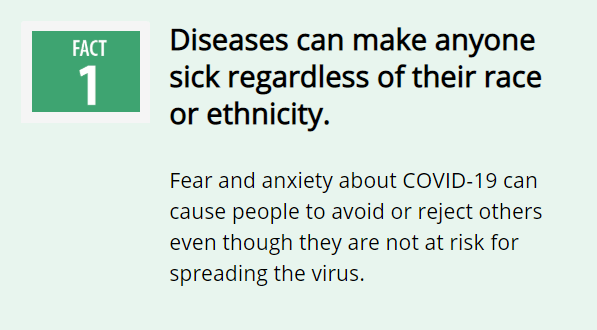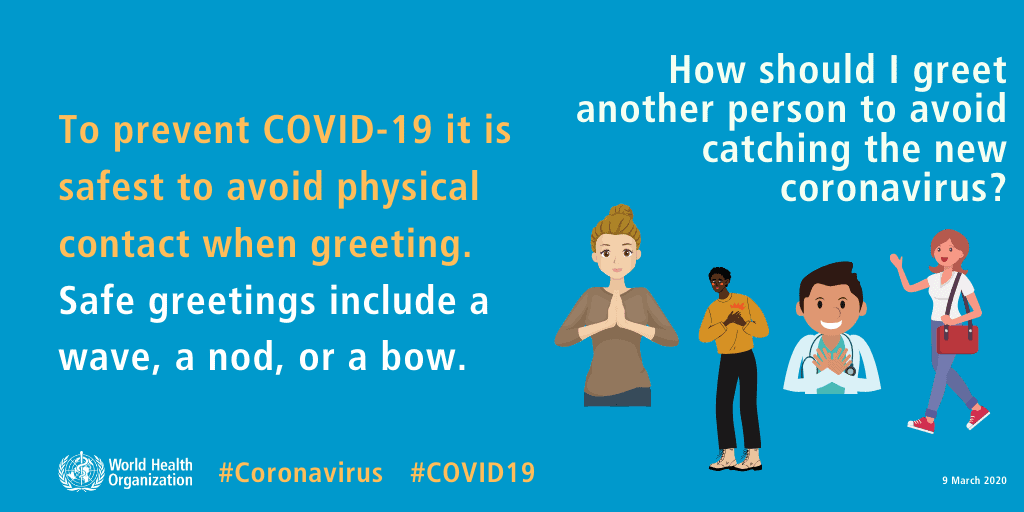Here’s a simple guide to COVID-19 that you can share with your clients and patients.
By Eliana Ifill
For the past few weeks, the talk about coronavirus and COVID-19 has spread all over the news, social media networks, and even daily chats with everyone in your life.
But what exactly is COVID-19?
Understand COVID-19
First, let’s distinguish between coronavirus and COVID-19:
- Coronavirus is a type of virus known to cause several diseases to humans and some animals. These diseases can range from mild, like the common cold, to severe, like pneumonia.
- COVID-19, on the other hand, means “coronavirus disease 2019.” It is the illness caused by a type of coronavirus known as severe acute respiratory syndrome coronavirus 2 (SARS-CoV-2).
[Related: Health Insurance Updates]
How does COVID-19 spread?
The easiest way for the virus to go from one person to another is through direct contact with respiratory (through the nose or mouth) droplets from someone who is infected.
The virus can be spread by coming into contact with objects that have been contaminated. The virus may be able to last for days or even weeks on surfaces, according to National Institutes of Health. This research means that people may get the virus through the air and after touching contaminated objects.
How can you tell if you or someone has COVID-19?
While there’s evidence to believe that some patients show no signs of illness while infected with SARS-CoV-2, there are symptoms you can keep an eye on. A dry cough, fever, and trouble breathing are signs of COVID-19.
COVID-19 is similar to a cold or flu, but differs in a few key ways:
- A cold will usually cause a runny nose, sneezing, a sore throat, and fatigue.
- A flu tends to include a fever or chills, body aches, and even weakness.
While everyone is at risk, COVID-19 affects older patients, patients with chronic illnesses like diabetes and heart disease, and those with suppressed immune systems the hardest.

Here’s an important takeaway from the CDC: “Diseases can make anyone sick regardless of their race or ethnicity. Fear and anxiety about COVID-19 can cause people to avoid or reject others even though they are not at risk for spreading the virus.” The CDC shares this and other facts for clients and patients on the web or through this downloadable document (PDF).
Prevent COVID-19
Basic hygiene and some social changes can help keep you and people around you healthy. Some tips to remember:
- Cover your face when sneezing or coughing, preferably with a disposable tissue, and thoroughly wash your hands afterwards.
- Wash your hands carefully and regularly to prevent anything you’ve come in contact with from entering your body. This means with soap and water for 20 seconds.
On LinkedIn, health care consultant Dr. Nicolas Argy says these are some of the most common mistakes with handwashing.
“You are fastidious: you wash constantly. You think it is time because you touched a potential dirty surface.
1 You turn on the water
2 You wash thoroughly for 20 seconds
3 You turn off the waterPerfect, right?
NO WRONG
The faucet is contaminated because you touched it with dirty hands. Use a wipe or paper towel or tissue to turn off the water or else you recontaminate yourself.”
- Avoid touching your face to stop the virus from reaching your mouth, nose, or eyes.
- Declutter your home, workspace, or wherever you’re spending the most time. An empty desk is easier to clean and you’re removing surface areas where the virus might hide.
- Stay home. Avoid crowded areas and stay at least six feet away from others—if you can smell the garlic they ate last night or their deodorant, you’re too close. Don’t ride the elevator in groups, and avoid public transportation if possible.
- If you must go out, remove your “outside clothes” as soon as you can when you’re home, and put them directly in the washing machine. If you can’t, keep a separate basket for dirty clothes only. Avoid touching things like your bed or couch before cleaning up.

The WHO’s Coronavirus disease (COVID-19) advice for the public has detailed materials and videos you can download and share.
If you have caught the virus, it’s very important that you continue to practice these tips to prevent exposing others to the disease. Since there is no known cure, as with colds and the flu, preventing COVID-19 from spreading is the only way to stop this pandemic for now.


